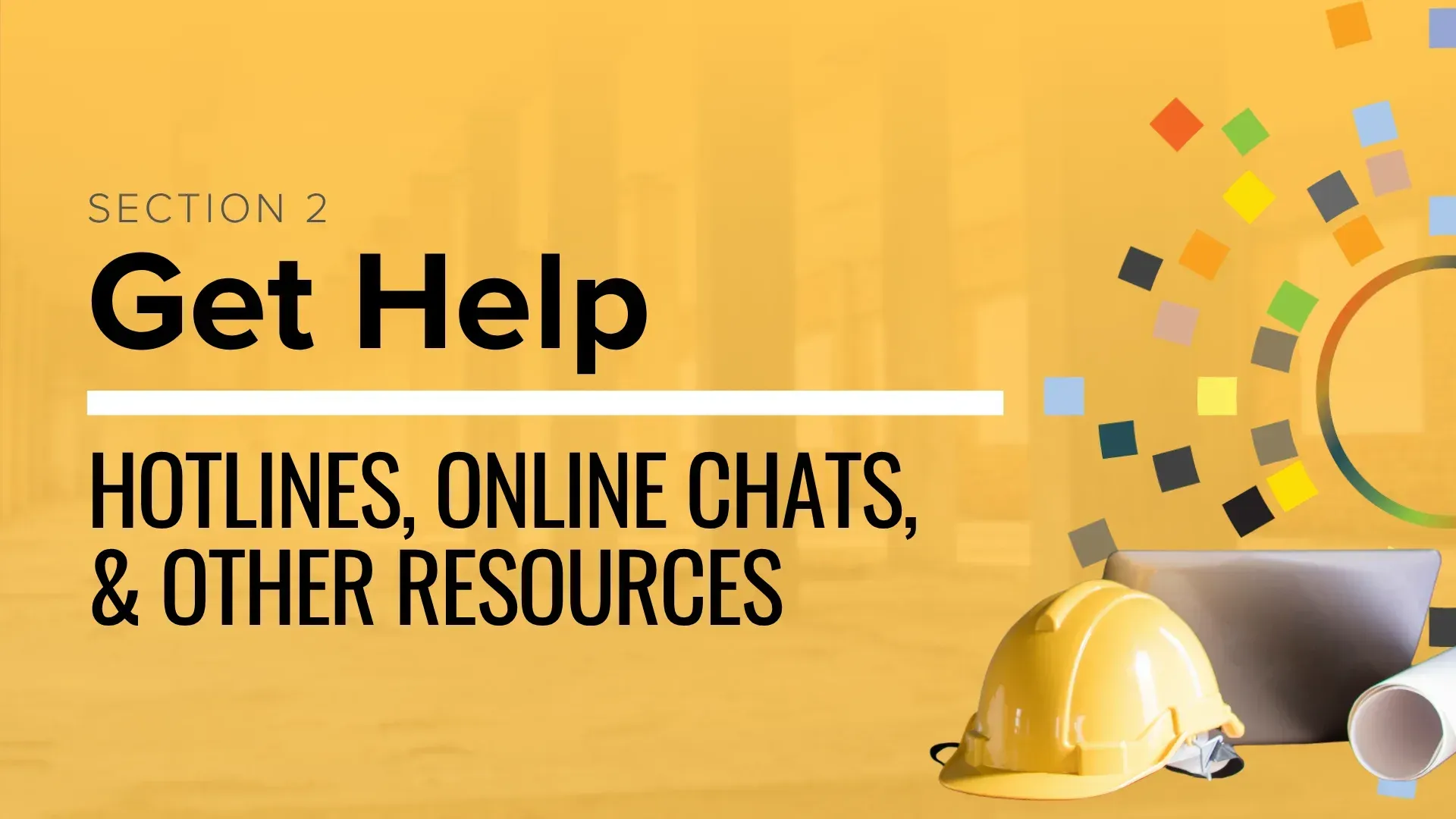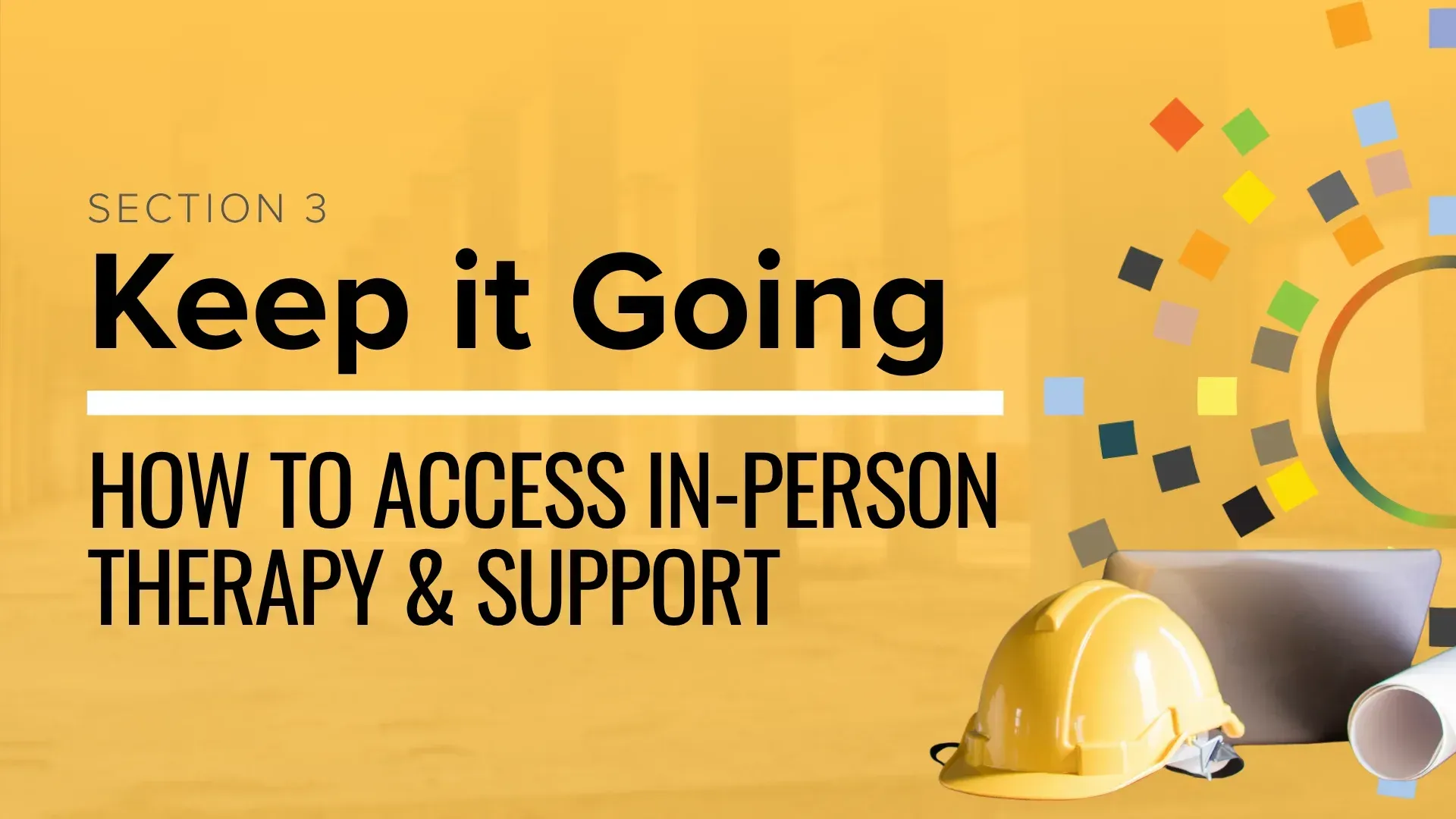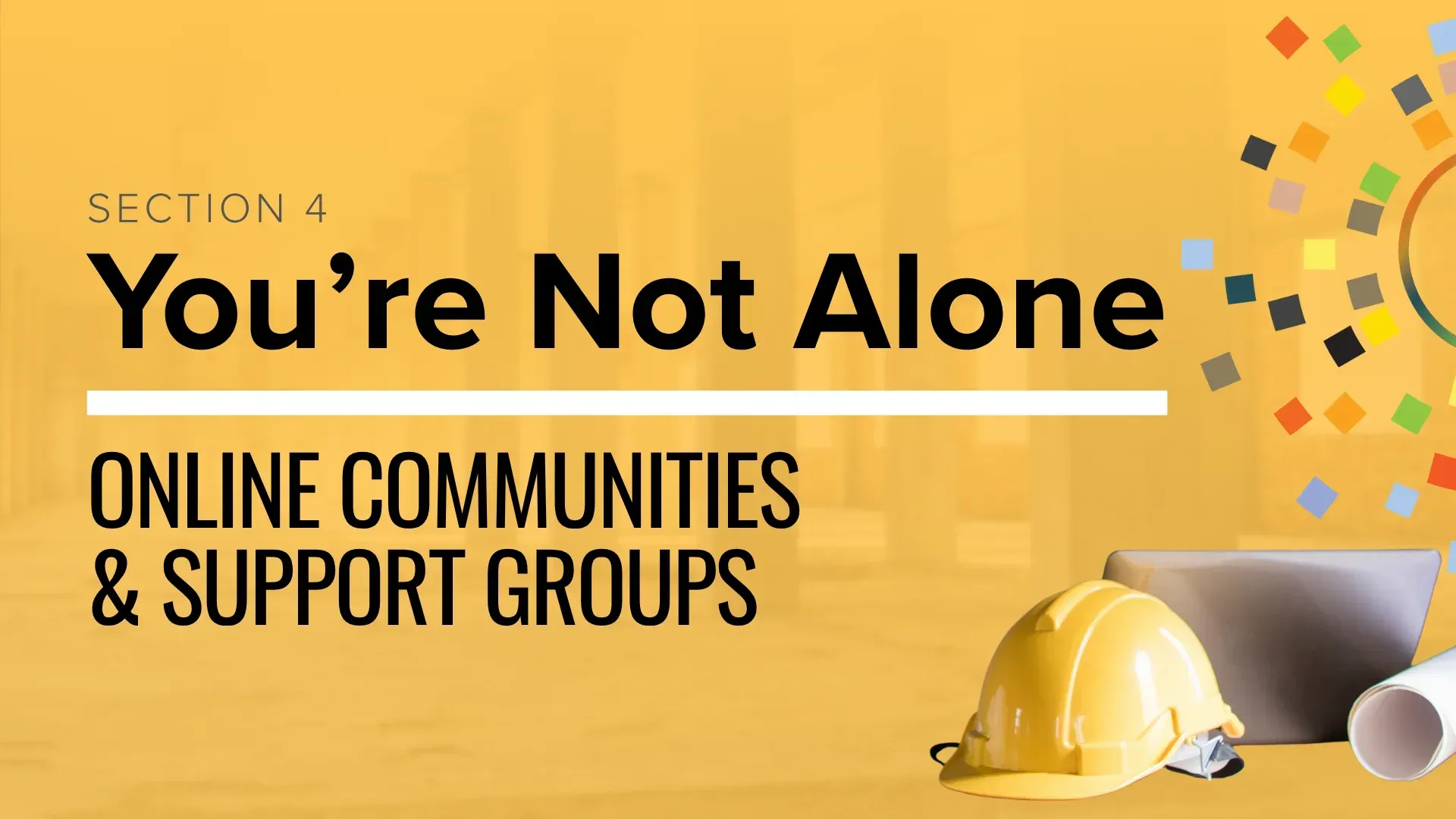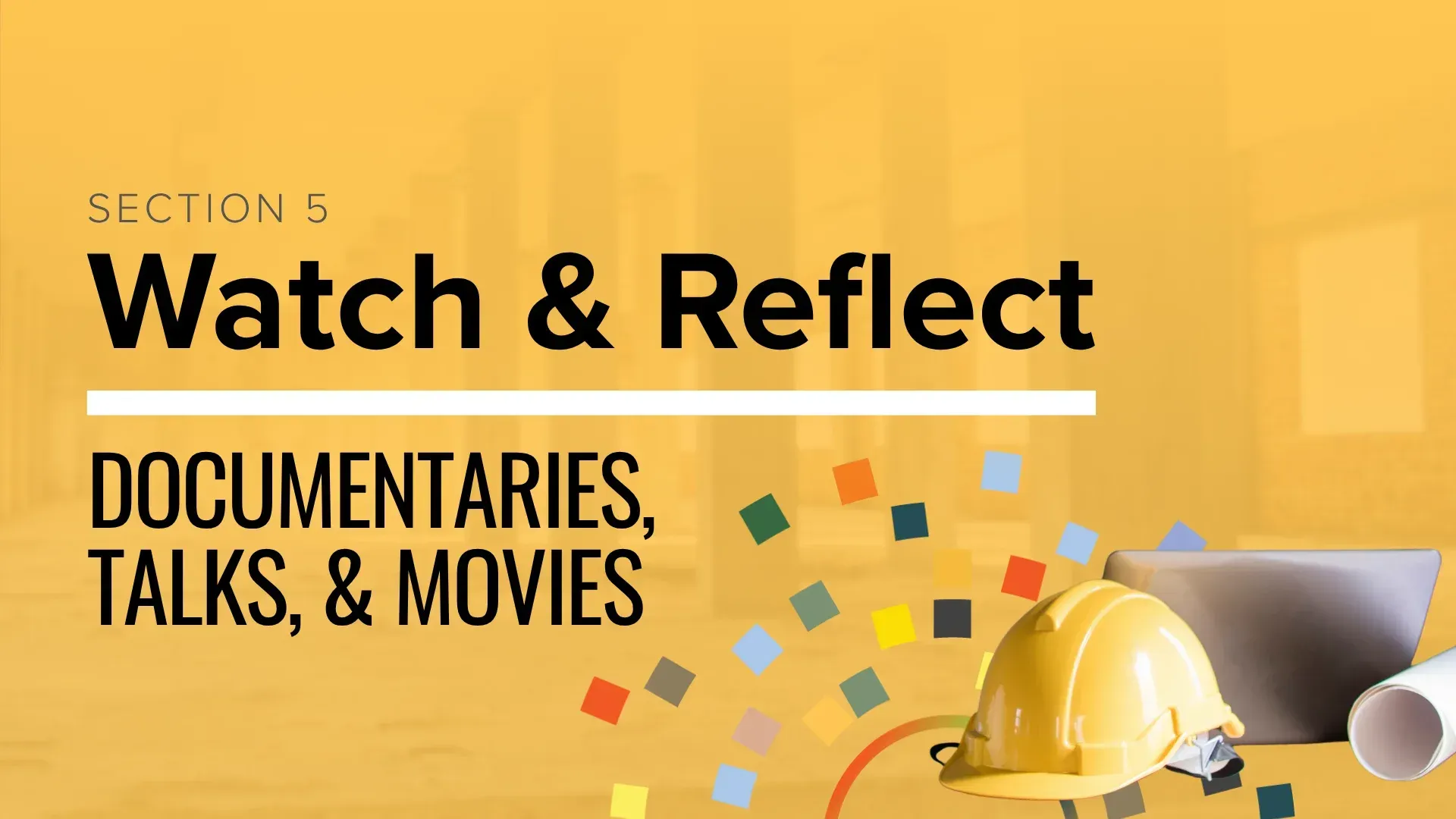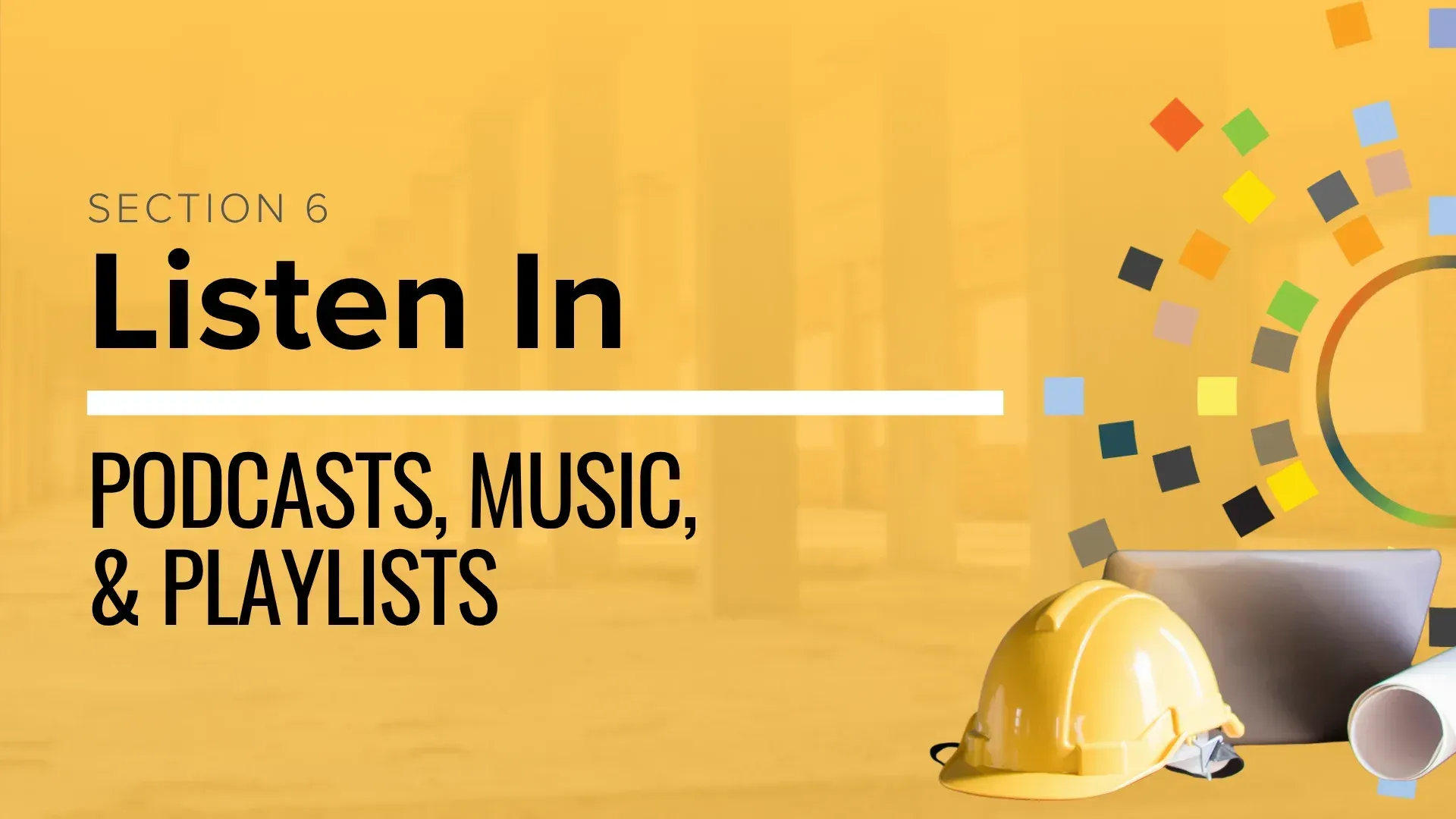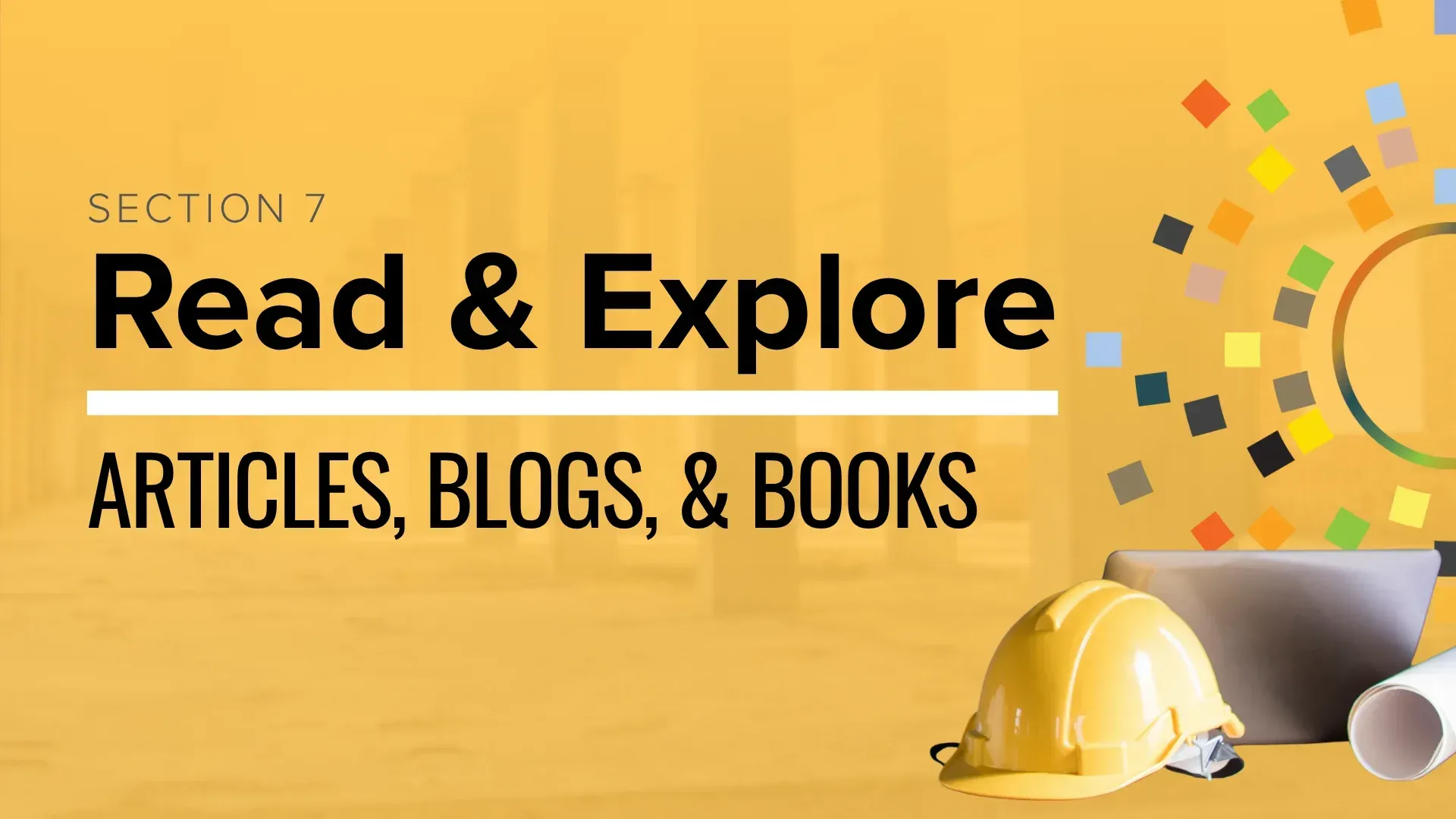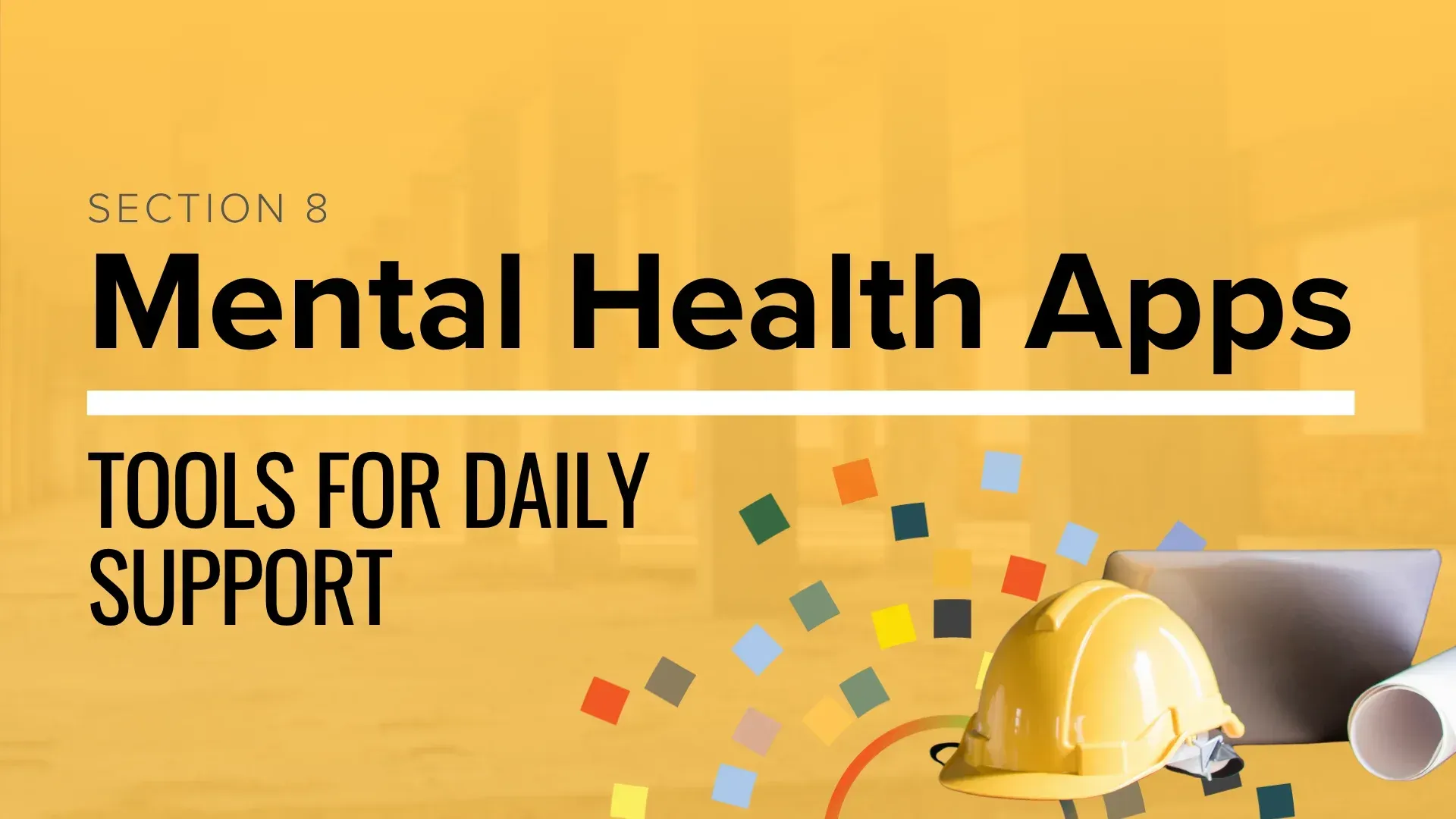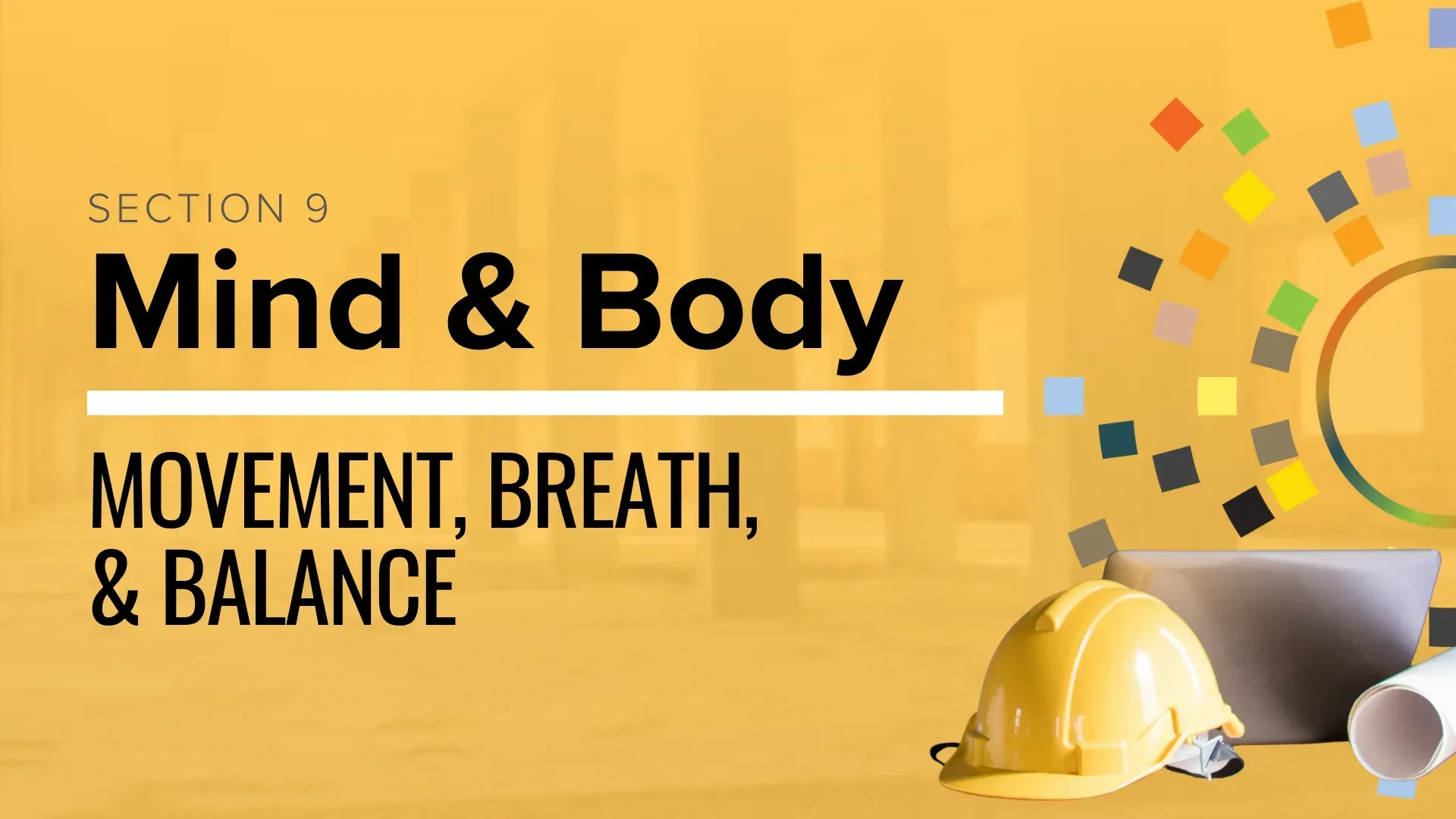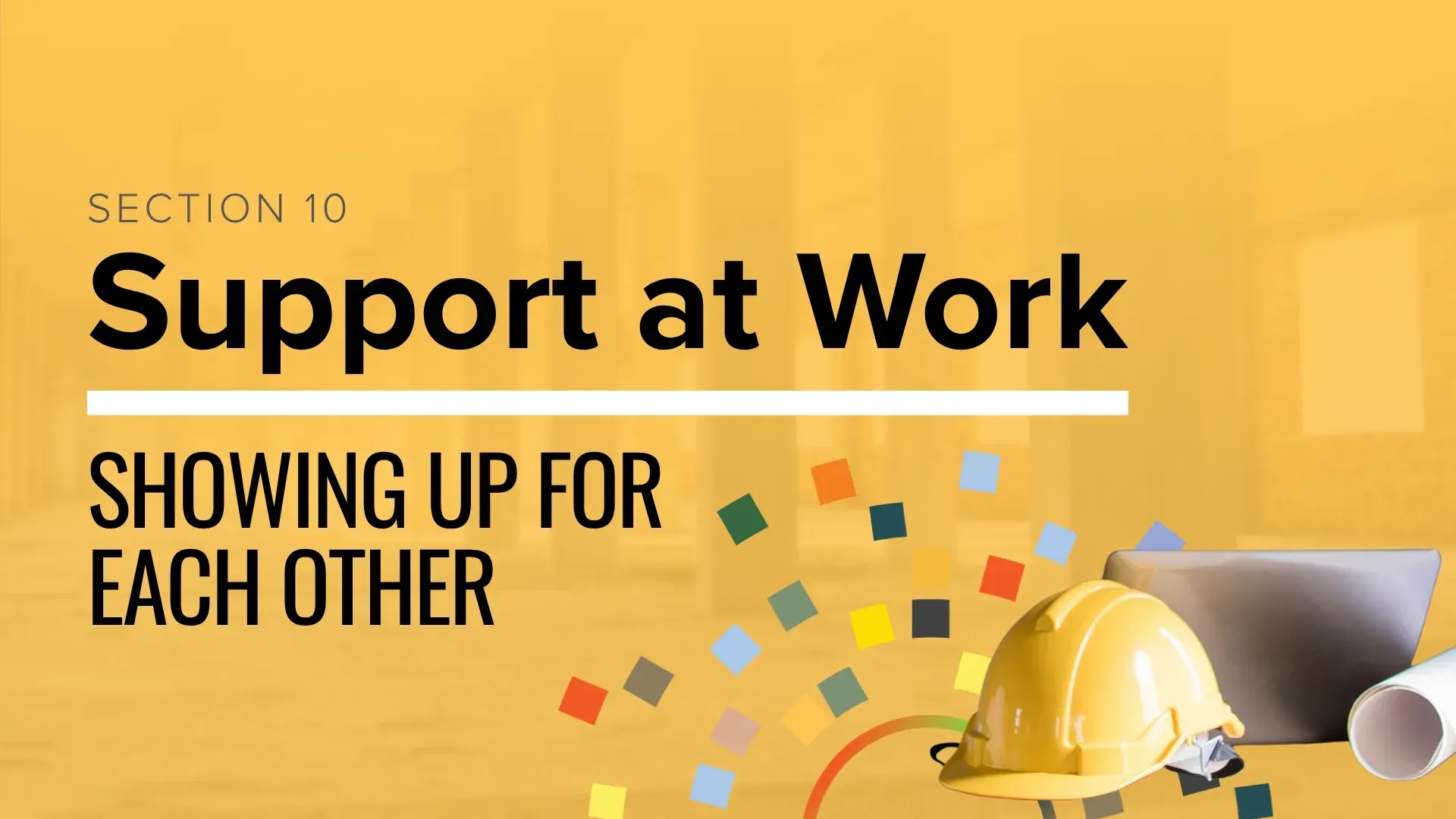Construction Inclusion Week Mental Health Resources: Section 1
Start with You: Self-Understanding & Mental Health Check-Ins
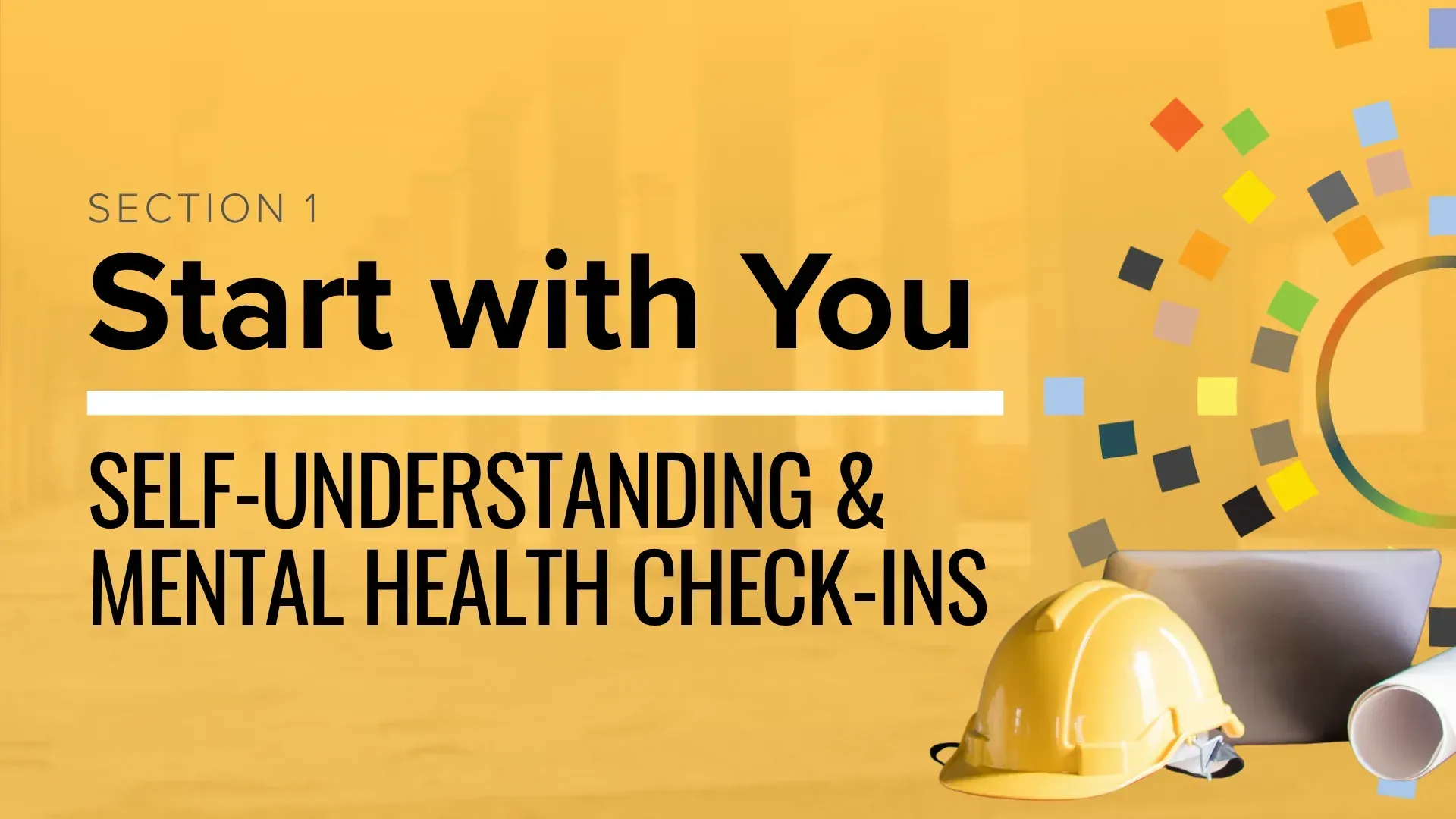
Empower yourself to cultivate self-awareness and emotional understanding, enabling you to identify your mental health needs and seek appropriate support.
Awareness is your crucial first step in addressing mental health challenges, especially in the high-pressure environment of the construction industry. Before you seek external help or resources, take a moment to engage in self-reflection. This section provides you with tools designed to facilitate a deeper understanding of your emotional state, helping you recognize how stress manifests in your life and what underlying issues may be present. By encourage private, judgment-free self-assessments, this resource aims to equip you with the insights needed to articulate your feelings and identify the support that will be most beneficial for you.
Get Started
Explore Further
The Importance of Self-Reflection
In the fast-paced world of construction, you may often prioritize deadlines and project completion over your own mental well-being. However, taking a moment to pause and reflect on your emotional state can be transformative. Self-reflection allows you to assess your feelings, recognize stressors, and understand how these factors impact your performance and interactions on the job site. By fostering a habit of introspection, you can develop a clearer picture of your emotional landscape, which is essential for maintaining your mental health and resilience in a demanding industry.
Recognizing Stress and Its Impact
Stress can manifest in various ways for you, from physical symptoms like fatigue and tension to emotional responses such as irritability and anxiety. Understanding how stress shows up in your life is vital for effective management. This section provides you with tools to identify your unique stress responses and the potential triggers behind them. By acknowledging these patterns, you can take proactive steps to mitigate stress, whether through mindfulness practices, physical activity, or seeking support from colleagues or mental health resources. Recognizing stress is not a sign of weakness; rather, it is a crucial step toward fostering a healthier work environment for yourself.
Seeking the Right Support
Once you gain insight into your emotional needs, the next step is to identify the types of support that will be most effective for you. This could range from informal check-ins with peers to professional counseling services. The construction industry often emphasizes teamwork and collaboration, and this principle can extend to your mental health support as well. By creating a culture where seeking help is normalized and encouraged, you can build a stronger network of support that benefits everyone. This section emphasizes the importance of articulating your needs and exploring various avenues for assistance, ensuring that you feel empowered to take charge of your mental health journey.
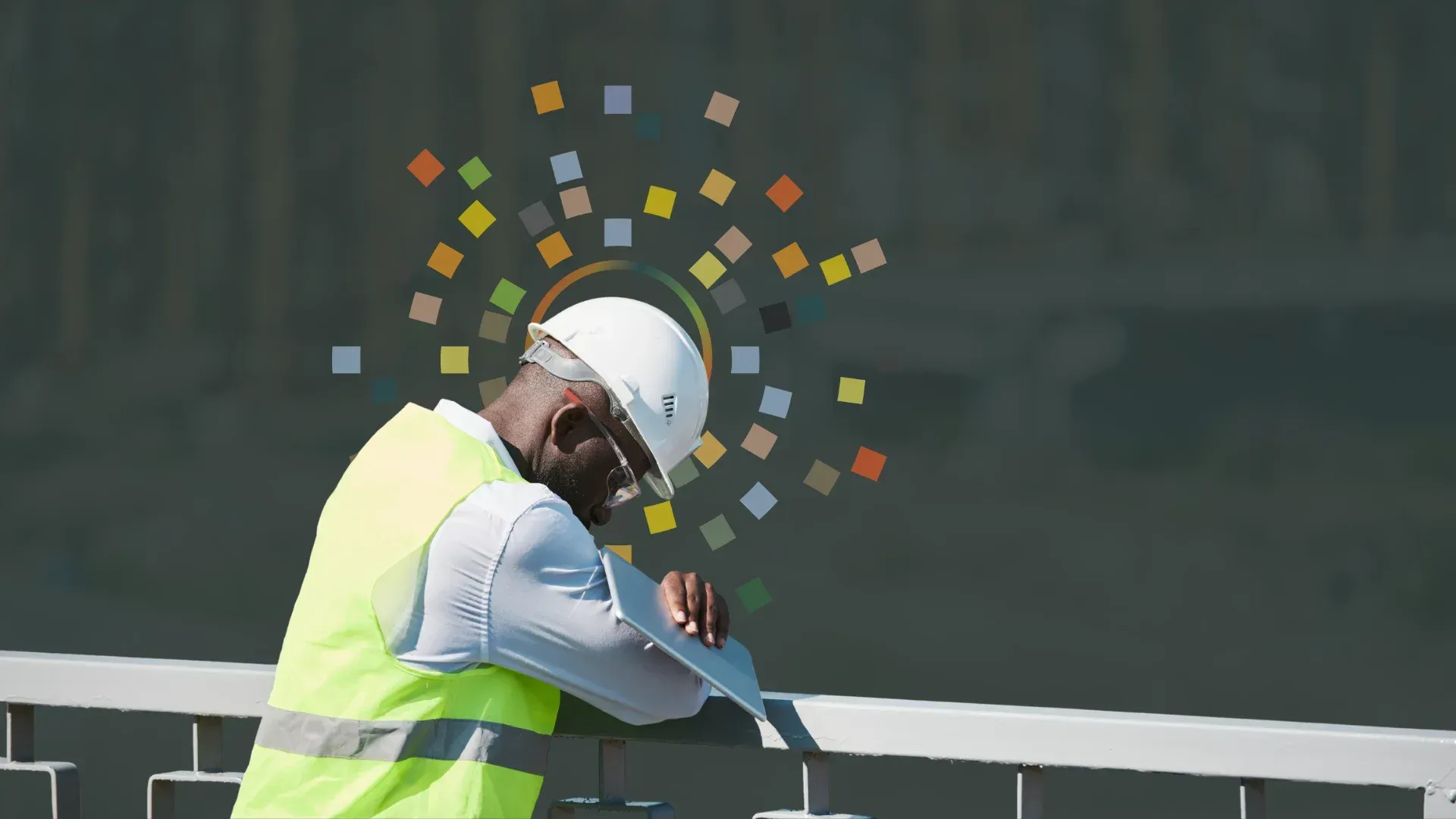
Resources
Whether you're assessing your emotional foundations, connecting with immediate support, or seeking professional guidance, the following resources work alongside your strengths to keep you strong on and off the job.
SELF-CHECK TOOLS & MENTAL HEALTH SCREENINGS
Mental Health America – Free Online Mental Health Tests Screenings for depression, anxiety, PTSD, substance use, and more.
https://screening.mhanational.org/screening-tools/
MindWise Innovations – Mental Health Screening Tools
Clinically validated tools to reflect on stress, mood, substance use, and more.
https://www.mindwise.org/what-we-offer/online-screening/
Anxiety & Depression Association of America – Anxiety Self-Test
A brief quiz to assess how anxiety may be showing up in your life.
https://adaa.org/living-with-anxiety/ask-and-learn/screenings
Psychology Today – Personality & Emotional Health Tests
Interactive tools for emotional intelligence, burnout, stress response, and more.
EXPLORE YOUR PATTERNS & EMOTIONAL LANDSCAPE
Emotion Identification Worksheet
Helps identify specific feelings beyond “bad” or “stressed.”
https://www.therapistaid.com/worksheets/identifying-emotions.pdf
Feelings Wheel
A visual tool for building emotional vocabulary and awareness.
Cognitive Distortion Worksheet
Spot unhelpful thinking patterns (like catastrophizing or mind reading) and begin to reframe them.
https://www.therapistaid.com/worksheets/cognitive-distortions.pdf
Stress Warning Signs Checklist
Understand how chronic stress may be affecting your body, thoughts, and behavior.
https://www.helpguide.org/articles/stress/stress-symptoms-signs-and-causes.htm
Mental Health Continuum Tool
Recognize where you fall — healthy, reacting, injured, or ill — and what steps may support you.
https://www.guardingmindsatwork.ca/tools/mental-health-continuum
FAST, EVERYDAY CHECK-IN TOOLS
The HALT Framework
Ask yourself: Am I Hungry? Angry? Lonely? Tired?
These four states are common drivers of emotional distress — and they’re often fixable.
https://insighttimer.com/blog/halt-technique/
The Wheel of Needs
Explore what’s truly unmet — from rest and autonomy to joy and purpose.
https://humansystems.co/wheel-of-needs/
Values Sort Activity
Clarify what truly matters to you and how you want to show up — especially useful during burnout or
indecision.
https://www.mhs.com/MHS-Talent/Assessments/Personal-Values-Sorter
Personal Assessment
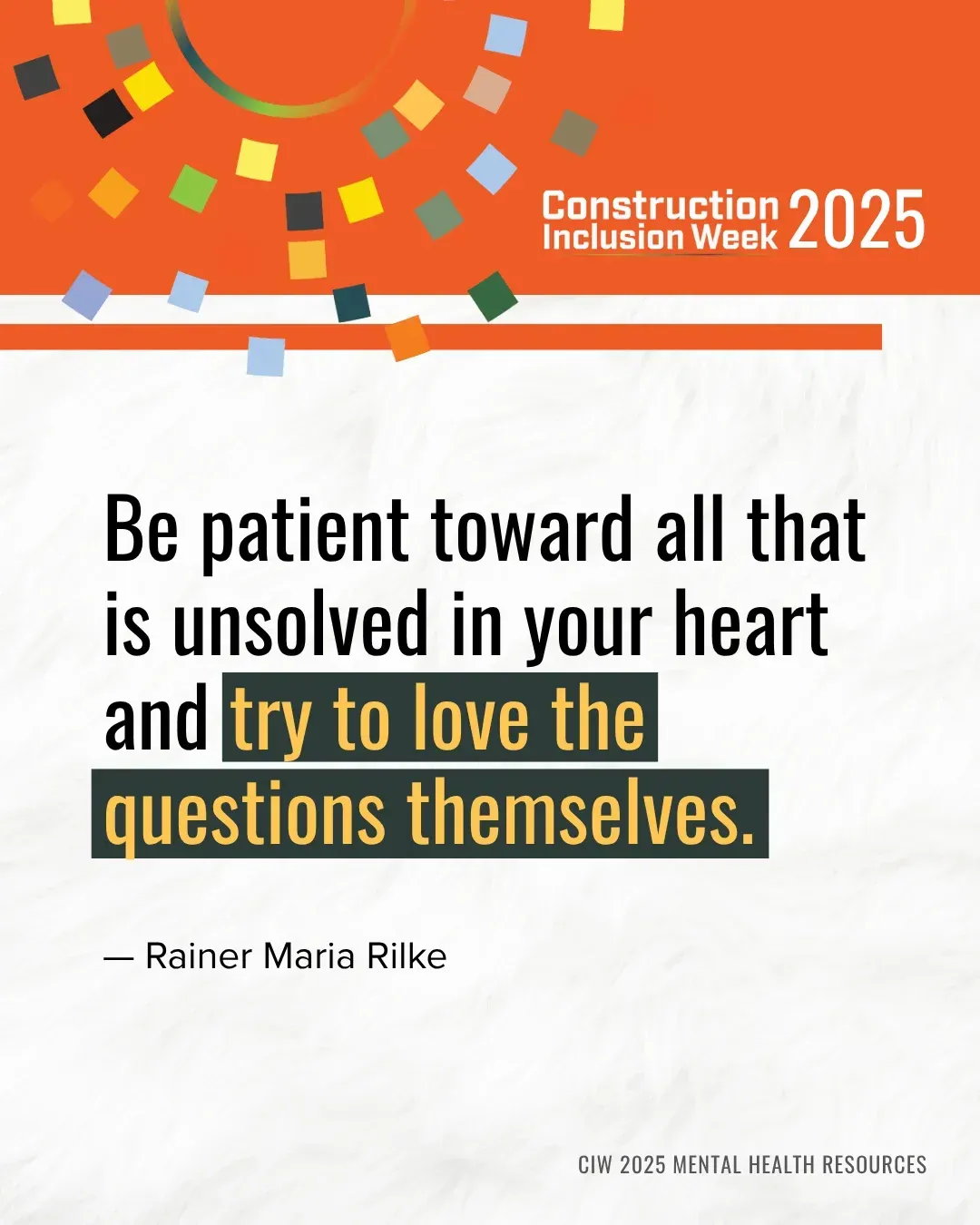
Gentle Prompts for Reflection
How do I typically feel at the start and end of my workday?
What physical symptoms do I notice when I am under stress?
Are there specific situations or tasks that trigger feelings of anxiety or overwhelm for me?
How comfortable do I feel discussing my mental health with colleagues or supervisors?
What types of support have I found helpful in the past, and what do I think I might need now?
Quotes for Reflection
"The greatest weapon against stress is our ability to choose one thought over another." – William James
"Self-care is not a luxury. It is a necessity." – Audre Lorde
"You can’t stop the waves, but you can learn to surf." – Jon Kabat-Zinn
"Awareness is the greatest agent for change." – Eckhart Tolle
"The mind is everything. What you think you become." – Buddha




